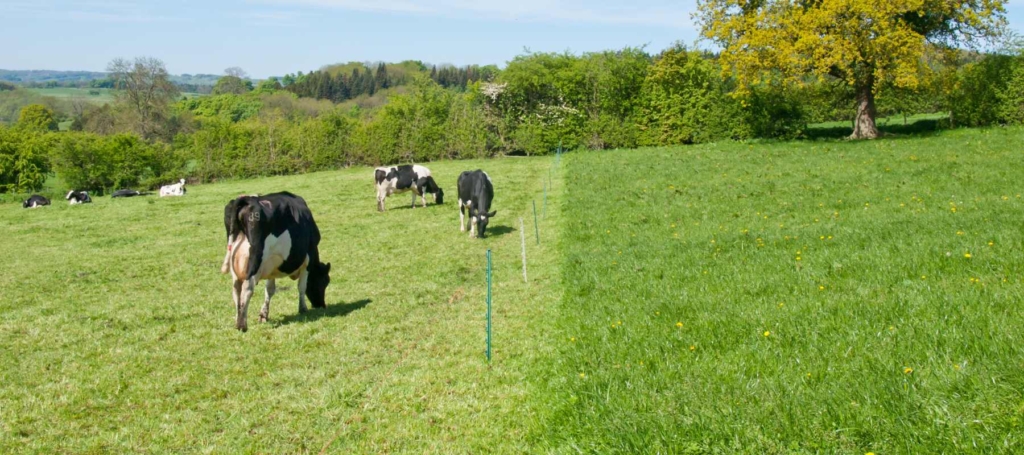Exploring Fencing Systems for Agriculture: A Comprehensive Guide to Fencing in Ireland
As the backbone of Ireland’s agricultural landscape, fencing plays a pivotal role in securing and optimizing farm operations across our island. From safeguarding livestock to delineating boundaries and protecting crops, the right fencing system is essential for farmers seeking to maximize productivity and sustainability. In this guide, we delve into the world of fencing in Ireland, exploring the various types, benefits, and considerations for agricultural applications.
Understanding Fencing in Ireland
Fencing in Ireland serves a multitude of purposes, reflecting the diverse needs of the agricultural sector. Whether it’s containing grazing livestock, preventing crop damage from wildlife, or delineating property boundaries, farmers rely on robust fencing solutions to safeguard their livelihoods and investments. With Ireland’s lush pastures, rugged terrain, and unpredictable weather, the choice of fencing system is critical for ensuring long-term durability and effectiveness.
Types of Fencing Systems
In Ireland, several types of fencing systems are commonly used in agricultural settings, each with its own unique characteristics and suitability:
- Post and Rail Fencing: A traditional and visually appealing option, post and rail fencing is well-suited for delineating boundaries and containing large livestock such as cattle and horses. With sturdy wooden posts and rails, this type of fencing offers durability and longevity, making it a popular choice for farms and estates across Ireland.
- Wire Fencing: Versatile and cost-effective, wire fencing is widely used for enclosing pastures, fields, and paddocks. Available in various configurations, including barbed wire, electric wire, and woven wire mesh, wire fencing provides effective containment for livestock while allowing for easy visibility and maintenance.
- Electric Fencing: Ideal for temporary or rotational grazing systems, electric fencing utilizes electrified wires or tapes to create temporary boundaries. This flexible and portable fencing solution offers quick installation and minimal maintenance, making it well-suited for dynamic farming environments.
- Stock Fencing: Specifically designed for livestock containment, stock fencing features closely spaced vertical wires supported by sturdy posts. This type of fencing provides a secure barrier against larger animals while allowing for adequate ventilation and visibility.
Considerations for Agricultural Fencing
When selecting a fencing system for agricultural use in Ireland, several factors should be considered:
- Terrain: Ireland’s diverse terrain, including hills, valleys, and wetlands, can impact the choice of fencing system. Farmers should choose fencing solutions that are adaptable to various landscapes and offer stability in challenging terrain.
- Climate: With Ireland’s maritime climate characterized by frequent rain and wind, fencing materials should be resilient to weathering and corrosion. Opting for durable, weather-resistant materials ensures longevity and minimal maintenance requirements.
- Livestock Management: Consider the specific needs and behaviors of the livestock being contained. Fencing systems should be designed to withstand pressure from grazing animals and prevent escapes or injuries.
- Regulatory Compliance: Familiarize yourself with local regulations and standards governing fencing installations, including height requirements, setback distances, and any environmental considerations.
Farm and Dairy Spares have a vast range of fencing products and systems for sale.
In recent years, technological advancements have further expanded the repertoire of fencing options available to Irish farmers. PEL fencing systems, renowned for their reliability and innovation, offer state-of-the-art solutions for electric fencing needs. With features such as intelligent energizers, remote monitoring capabilities, and animal-specific settings, PEL fencing systems provide enhanced control and efficiency in livestock management.
Moreover, for those seeking sustainable and energy-efficient fencing solutions, solar fencing emerges as a compelling choice. Harnessing the abundant Irish sunshine, solar fencing systems utilize photovoltaic technology to power electrified fences. By tapping into renewable energy sources, farmers can reduce their environmental footprint and operating costs while ensuring uninterrupted protection for their livestock and crops. Solar fencing offers a viable alternative for remote or off-grid locations where access to traditional power sources may be limited.
Incorporating PEL fencing systems and solar fencing solutions into the agricultural landscape of Ireland not only enhances security and productivity but also underscores the industry’s commitment to innovation and sustainability. As farmers embrace these cutting-edge technologies, they are poised to reap the benefits of increased efficiency, reduced environmental impact, and enhanced resilience in the face of evolving challenges. With a diverse array of fencing options available, Irish farmers have the tools they need to safeguard their farms, optimize their operations, and thrive in the dynamic agricultural sector of Ireland.
Conclusion
In conclusion, fencing plays a vital role in agriculture in Ireland, providing essential security, containment, and delineation for farm operations. By understanding the various types of fencing systems available and considering factors such as terrain, climate, and livestock management, farmers can select the most suitable fencing solution to meet their needs. Whether it’s post and rail fencing for estate boundaries or electric fencing for rotational grazing, the right fencing system enhances productivity, sustainability, and peace of mind for farmers across Ireland.
For comprehensive fencing solutions tailored to your agricultural needs, explore our range of fencing products and services. From traditional post and rail fencing to innovative electric fencing systems, we’re here to support your farm’s success and security in Ireland’s vibrant agricultural landscape.

